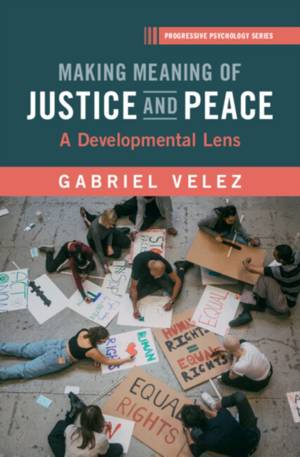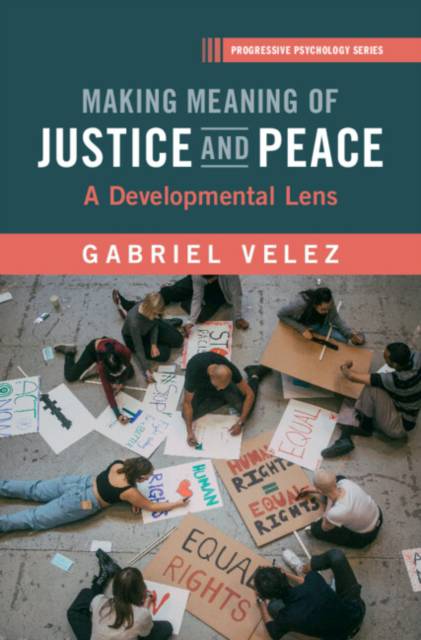
- Afhalen na 1 uur in een winkel met voorraad
- Gratis thuislevering in België vanaf € 30
- Ruim aanbod met 7 miljoen producten
- Afhalen na 1 uur in een winkel met voorraad
- Gratis thuislevering in België vanaf € 30
- Ruim aanbod met 7 miljoen producten
Zoeken
Making Meaning of Justice and Peace
A Developmental Lens to Restorative Justice and Peace Education
Gabriel Velez
€ 32,45
+ 64 punten
Uitvoering
Omschrijving
This comprehensive guide navigates the intersection of psychology, peacebuilding, and violence engagement among youth. Beginning with an exploration of psychology's role in social justice, it establishes the groundwork in restorative justice and peace education, areas ripe for psychological exploration. The book introduces the conceptualized peace framework, illuminating how young people interpret societal discourses to shape their identities within the context of peace and harmony. Through empirical examples, the framework's efficacy is demonstrated, followed by practical methods and future directions for educators, practitioners, and policymakers. Core to its mission is unravelling the psychological mechanisms underlying participation in peace education and restorative justice, probing how past experiences influence engagement and shape social identities. By addressing these questions, the book offers a roadmap grounded in theoretical development, bolstered by empirical case studies and methodological approaches, to guide scholars and students in fostering peaceful, harmonious societies.
Specificaties
Betrokkenen
- Auteur(s):
- Uitgeverij:
Inhoud
- Aantal bladzijden:
- 228
- Taal:
- Engels
- Reeks:
Eigenschappen
- Productcode (EAN):
- 9781009360630
- Verschijningsdatum:
- 25/09/2025
- Uitvoering:
- Paperback
- Formaat:
- Trade paperback (VS)
- Afmetingen:
- 152 mm x 229 mm
- Gewicht:
- 308 g

Alleen bij Standaard Boekhandel
+ 64 punten op je klantenkaart van Standaard Boekhandel
Beoordelingen
We publiceren alleen reviews die voldoen aan de voorwaarden voor reviews. Bekijk onze voorwaarden voor reviews.








